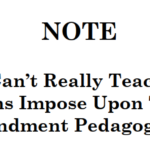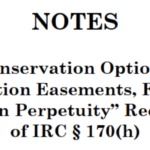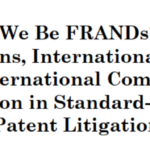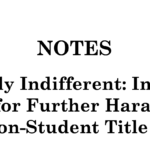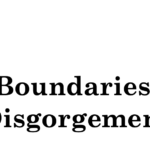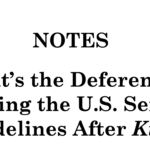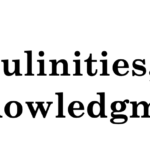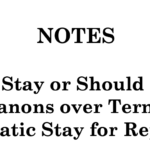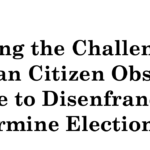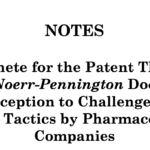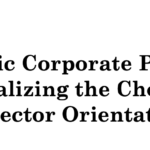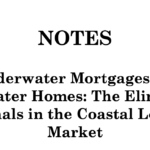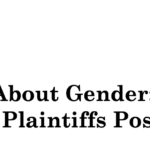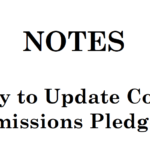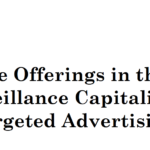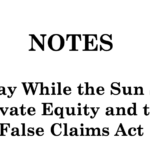Notes Category
Can’t Really Teach: CRT Bans Impose Upon Teachers’ First Amendment Pedagogical Rights
Nov. 22, 2022—Mary Lindsay Krebs | 75 Vand. L. Rev. 1925 The jurisprudence governing K-12 teachers’ speech protection has been a convoluted hodgepodge of caselaw since the 1960s when the Supreme Court established that teachers retain at least some First Amendment protection as public educators. Now, as new so-called Critical Race Theory bans prohibit an array of...
Conservation Options: Conservation Easements, Flexibility, and the “In Perpetuity” Requirement of IRC § 170(h)
Oct. 20, 2022—Molly Teague | 75 Vand. L. Rev. 1573 Conservation easements have been closely tied to tax incentives since the 1970s, when Congress passed legislation to encourage land preservation. In an attempt to balance the desire to conserve more land with the desire to prevent tax abuses, Congress later passed § 170(h) of the Internal Revenue Code,...
Why Can’t We Be FRANDs?: Anti-Suit Injunctions, International Comity, and International Commercial Arbitration in Standard-Essential Patent Litigation
Oct. 20, 2022—Raghavendra R. Murthy | 75 Vand. L. Rev. 1609 Picking up a smartphone to contact someone across the globe is facilitated by technical standards like 5G. These standards allow for technological compatibility worldwide. For instance, a 5G capable device can connect to 5G networks anywhere in the world because the same 5G standard is used...
Deliberately Indifferent: Institutional Liability for Further Harassment in Student-on-Student Title IX Cases
May. 18, 2022—Jacob R. Goodman | 75 Vand. L. Rev. 1273 (2022) | Sexual harassment is an unfortunate problem far too many have experienced. Universities and other educational institutions owe a duty, both legal and moral, to protect students from sexual harassment, and in turn to allow students to receive the full benefits of their education. But a...
Finding the Boundaries of Equitable Disgorgement
May. 18, 2022—Cameron K. Hood | 75 Vand. L. Rev. 1307 (2022) | The disgorgement of “ill-gotten gains” is a significant mechanism for enforcing the securities laws. By compelling a violator of the securities laws to forfeit their illegal proceeds, disgorgement serves as a strong deterrent for securities fraud and an important method by which investors are compensated...
What’s the Deference? Interpreting the U.S. Sentencing Guidelines After Kisor
Apr. 21, 2022—Liam Murphy | 75 Vand. L. Rev. 957 (2022) | For more than three decades, the U.S. Sentencing Guidelines have constrained the punishment doled out by federal judges, limiting discretion that was once nearly unlimited and bringing standardization to the penological decisionmaking process. For twice as long, the Supreme Court has constrained judges in a different...
Policing, Masculinities, and Judicial Acknowledgment
Apr. 21, 2022—Nicholas J. Prendergast | 75 Vand. L. Rev. 997 (2022) | In the 1980s, the Supreme Court held that courts must consider the “totality of the circumstances” when deciding the reasonableness of a police officer’s conduct in an excessive force suit. To this day, the precise meaning of “reasonableness” remains elusive. For years, courts around the...
Should It Stay or Should It Go: The Clash of Canons over Termination of the Automatic Stay for Repeat Filers
Mar. 22, 2022—John H. Gibbons | 75 Vand. L. Rev. 615 (2022) | One of the most important debtor protections provided by bankruptcy law is the automatic stay, which stops creditors from pursuing collection actions against the debtor. Over time, however, debtors began to abuse the stay by repeatedly filing for bankruptcy each time a creditor tried to...
Challenging the Challengers: How Partisan Citizen Observers Contribute to Disenfranchisement and Undermine Election Integrity
Mar. 22, 2022—Kate Uyeda | 75 Vand. L. Rev. 657 (2022) | Almost every state allows political parties to sponsor and train private citizens to serve as election observers and sometimes even to challenge the eligibility of other private citizens to vote. These partisan citizen observers, referred to in this Note as “PCOs,” have far too often perpetuated...
A Machete for the Patent Thicket
Jan. 24, 2022—Lisa Orucevic | 75 Vand. L. Rev. 277 (2022) | Outrageous drug prices have dominated news coverage of the American healthcare system for years. Yet despite widespread condemnation of skyrocketing drug prices, nothing seems to change. Pharmaceutical companies can raise drug prices with impunity because they hold patents on their drugs, which give them monopolies. These...
Dynamic Corporate Purpose
Jan. 24, 2022—Fields Pierce | 75 Vand. L. Rev. 325 (2022) | The debate over corporate purpose has turned into a “gordian knot” where parties with entrenched beliefs about what the corporation should or should not be within society refuse to waver. There are inherent flaws with the governance models proposed by academics, politicians, and practitioners alike, so...
Underwater Mortgages for Underwater Homes: The Elimination of Signals in the Coastal Lending Market
Oct. 19, 2021—Peyton J. Klein | 74 Vand. L. Rev. 1467 (2021) | Climate change and sea level rise threaten to increase the default risk of mortgages on homes in coastal areas. Faced with this reality, small coastal lenders have begun selling more climate-sensitive mortgages to Fannie Mae and Freddie Mac, thereby transferring the risk of climate-induced...
Let’s Talk About Gender: Nonbinary Title VII Plaintiffs Post-Bostock
Oct. 19, 2021—Meredith Rolfs Severtson | 74 Vand. L. Rev. 1507 (2021) | In Bostock v. Clayton County, the Supreme Court held that Title VII’s sex-discrimination prohibition applies to discrimination against gay and transgender employees. This decision, surprising from a conservative Court, has engendered a huge amount of commentary on both its substantive holding and its interpretive...
The Duty to Update Corporate Emissions Pledges
May. 28, 2021—Nathan Campbell | 74 Vand. L. Rev. 1137 (2021) | Facing both internal and external market pressures, a rapidly growing number of private companies are making public, voluntary, and ambitious pledges to reduce or outright eliminate by a certain date or benchmark their greenhouse gas emissions. Yet, ambition and necessity notwithstanding, nonfulfillment of these emission...
Private Offerings in the Age of Surveillance Capitalism and Targeted Advertising
May. 28, 2021—Christina M. Claxton | 74 Vand. L. Rev. 1187 (2021) | Social media platforms, as well as the internet more broadly, have fundamentally altered many aspects of modern life. In particular, platforms’ targeted advertising mechanisms have revolutionized how companies reach consumers by providing advertisers more effective tools for reaching consumers and by tailoring content to...
Make Hay While the Sun Shines: Private Equity and the False Claims Act
Apr. 20, 2021—Gregory F. Maczko | 74 Vand. L. Rev. 797 (2021) | For years, the federal government has used the False Claims Act to police fraud in the healthcare industry. Every year, the Department of Justice recovers billions of dollars from healthcare companies for their False Claims Act violations, both penalizing wrongdoers and providing incentives for...
